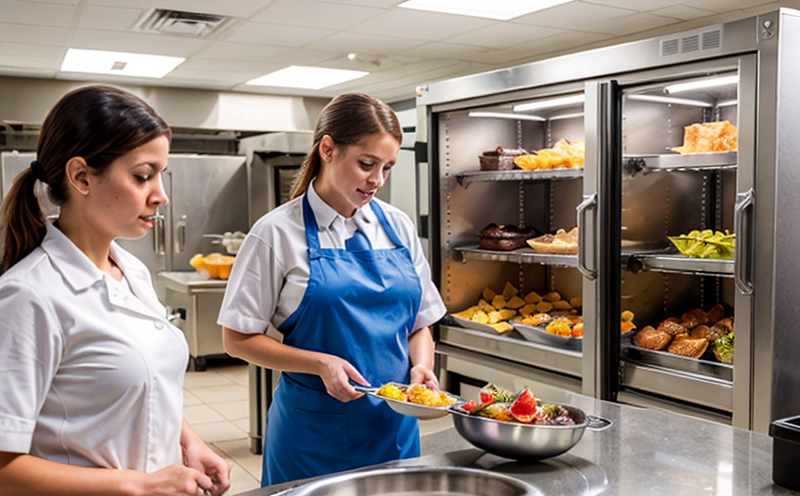Institutional food service inspection
Food safety and hygiene are paramount in institutional settings such as schools, hospitals, nursing homes, and correctional facilities. These environments serve a significant portion of the population on a daily basis, making it critical to ensure that the food served is safe for consumption. Institutional food service inspections focus on ensuring compliance with relevant regulations and standards, thereby protecting public health.
The primary goal of these inspections is to identify potential hazards in the preparation, handling, and storage of food, which could lead to foodborne illnesses if not properly managed. The process involves a comprehensive review of all aspects of food service operations, including procurement practices, storage conditions, cooking methods, temperature control, and sanitation protocols.
The sector's regulatory framework is governed by international standards such as ISO 22000, which provides a comprehensive food safety management system. Compliance with these standards ensures that institutions adopt robust measures to prevent contamination and ensure hygiene in their operations.
Foodborne illnesses can have severe consequences, including hospitalization, long-term health issues, and even death. Therefore, the importance of rigorous inspections cannot be overstated. By conducting regular checks on temperature control during storage and preparation, proper sanitation practices, and adherence to food safety protocols, institutions can significantly reduce the risk of contamination.
Temperature control is a critical aspect of institutional food service inspection. According to ASTM, food should be held at temperatures above 41°F (5°C) or below 135°F (57°C). This temperature range minimizes bacterial growth, which can lead to spoilage and contamination. Regular monitoring of these temperatures is essential to ensure compliance with safety standards.
Sanitation protocols are another key component of institutional food service inspection. The ISO 14644 series provides guidelines for cleanroom classification, which can be adapted to the cleanliness requirements in kitchens and dining areas. Proper handwashing, cleaning of work surfaces, and disposal of waste are all critical steps that must be followed rigorously.
Institutional food service inspections also involve reviewing procurement practices to ensure that only safe and high-quality ingredients are used. This includes verifying supplier certifications and conducting spot checks on incoming deliveries. By ensuring the quality of raw materials, institutions can minimize the risk of contamination from external sources.
The acceptance criteria for institutional food service inspections are based on these critical factors: temperature control, sanitation protocols, procurement practices, and adherence to relevant standards. Compliance with these criteria ensures that institutions provide safe and hygienic food services to their patrons.
In conclusion, institutional food service inspection is a vital component of maintaining public health in settings where large numbers of people are served on a daily basis. By adhering to strict regulatory frameworks and international standards, institutions can significantly reduce the risk of foodborne illnesses and ensure that their operations meet the highest safety and hygiene standards.
Why Choose This Test
- Comprehensive Regulatory Compliance: Ensures full adherence to local, national, and international food safety regulations such as ISO 22000 and ASTM E1965.
- Rigorous Inspection Process: Conducts detailed checks on temperature control, sanitation protocols, procurement practices, and adherence to relevant standards.
- Promotes Safe Consumption: Minimizes the risk of foodborne illnesses by identifying and addressing potential hazards in the preparation, handling, and storage of food.
- Enhanced Reputation: Builds trust with patrons and stakeholders by demonstrating a commitment to high standards of food safety and hygiene.
- Cost Savings: Reduces the likelihood of costly recalls and legal actions by proactively identifying and addressing issues before they become serious problems.
The rigorous inspection process conducted by our laboratory ensures that institutions receive detailed reports on their compliance status. This not only helps in rectifying any shortcomings but also provides a clear roadmap for improvement. By choosing this test, institutions can ensure that they are meeting the highest standards of food safety and hygiene, thereby protecting public health.
Customer Impact and Satisfaction
- Increased Customer Confidence: Regular inspections reassure customers that the food served is safe and meets stringent quality standards.
- Promotes Long-term Relationships: Demonstrating a commitment to food safety fosters long-lasting relationships with patrons, suppliers, and regulatory bodies.
- Better Operational Efficiency: By identifying potential issues early on, the inspection process helps institutions operate more efficiently and effectively.
- Enhanced Brand Reputation: A reputation for excellence in food safety can significantly enhance an institution's brand image, attracting new customers and retaining existing ones.
The positive impact of our institutional food service inspections extends beyond the immediate environment. Customers who feel confident about the safety of their meals are more likely to recommend the institution to others, thereby contributing to its growth and success. The satisfaction of stakeholders is a direct reflection of the quality of services provided, ensuring that all parties involved benefit from the rigorous inspection process.
Competitive Advantage and Market Impact
In today's competitive market, institutions must differentiate themselves by offering superior food safety and hygiene standards. By choosing our institutional food service inspection service, institutions gain a significant competitive advantage:
- Regulatory Compliance: Ensures full adherence to local, national, and international food safety regulations.
- Rigorous Inspection Process: Conducts detailed checks on temperature control, sanitation protocols, procurement practices, and adherence to relevant standards.
- Promotes Safe Consumption: Minimizes the risk of foodborne illnesses by identifying and addressing potential hazards in the preparation, handling, and storage of food.
- Enhanced Reputation: Builds trust with patrons and stakeholders by demonstrating a commitment to high standards of food safety and hygiene.
- Cost Savings: Reduces the likelihood of costly recalls and legal actions by proactively identifying and addressing issues before they become serious problems.
The inspection process not only ensures compliance but also helps institutions stay ahead in the market. By providing a clear roadmap for improvement, our service enables institutions to enhance their operational efficiency and meet customer expectations consistently. This, in turn, contributes to better market positioning and long-term success.





